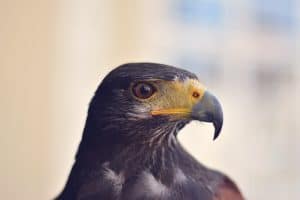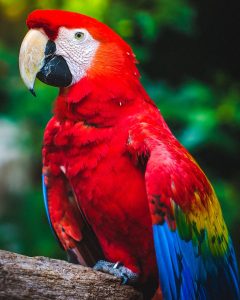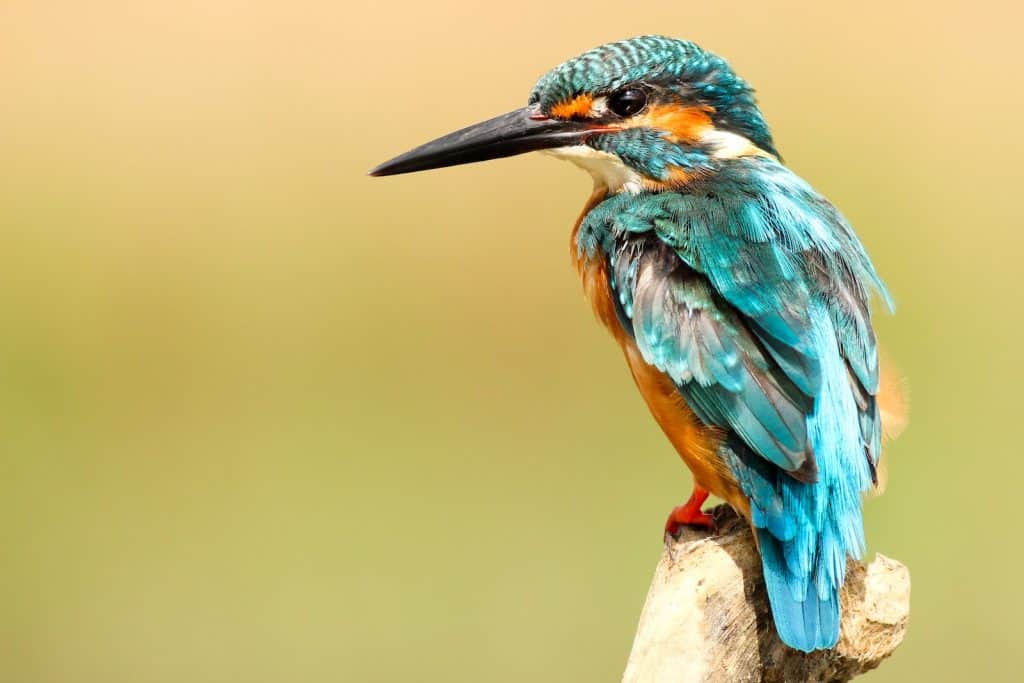Birds are fascinating creatures that exhibit a wide range of behaviors and adaptations, from their unique songs and calls to their impressive flight capabilities. One interesting behavior that many bird species engage in is rubbing bird’s beak. This behavior is often observed when birds are preening or grooming themselves, but it can also occur during social interactions between birds. But why do birds rub their beaks?
There are several reasons for this behavior, and it can vary depending on the species and situation. Some birds rub their beaks to remove excess oil or debris from their feathers, while others use their beaks to massage and clean their skin or bills. Additionally, beak rubbing can be a way for birds to communicate with one another or to establish dominance within a social group.
Top 5 Reasons Why Do Birds Rub Their Beaks?
Here are some of the 5 main reasons birds rub rub their beaks:
- Preening: One of the most common reasons why birds wipe their beaks is to groom and maintain their feathers. Birds have an oil gland at the base of their tail that produces a special oil called preen oil. They rub this oil onto their feathers with their beaks, which helps to waterproof and protect their feathers from damage.
- Removing debris: Aside from bird’s feet, they may also use their beaks to remove dirt, dust, and other debris from their feathers. This can help to keep their feathers clean and healthy, which is important for maintaining their ability to fly and stay warm.
- Skin and bill cleaning: In addition to grooming their feathers, some birds may use their beaks to clean their skin or bills. For example, some birds rub their beaks on rough surfaces to remove dead skin cells or to keep their bills sharp.
- Communication: Beak rubbing can also be a way for birds to communicate with other birds and other animals. For example, some bird species will rub their beaks together as a form of bonding or courtship behavior.
- Dominance: In some cases, beak rubbing can be a way for birds to establish dominance within a social group. Birds may use their beaks to nudge or push one another as a way to assert their position in the group hierarchy.
Overall, there are many different reasons why birds may rub their beaks, and the behavior can vary depending on the species and situation. By observing this behavior, we can gain a deeper understanding of the fascinating world of bird behavior and communication only bird can understand.
Beak rubbing is a common behavior observed in many bird species, which serves a variety of functions such as grooming, cleaning, communication, and social hierarchy. It is a natural and healthy behavior that helps birds maintain their physical health and social bonds.
On the other hand, beak grinding is not a natural behavior in birds. Parrots grind may be a sign of a health problem or stress. It is when a bird repeatedly grinds its beak against a surface, and it can be an indication of respiratory issues, digestive problems, or emotional stress.
It is essential for bird owners and caretakers to monitor their birds’ behavior and seek veterinary care if they notice any abnormal or concerning behavior, such as beak grinding. By understanding the natural and healthy behaviors of birds, we can better care for and appreciate these fascinating creatures.
- Challenges Your Parrot Mentally & Physically --- Toys are a necessity for parrots. They provide essential physical activity so that our intelligent feathered pets stay healthy. Bird Chewing Toy by SunGrow provides opportunities for parrots in the cage which they undertake when living in their native habitat. There are several multi-colored blocks in this single toy to make your bird active. These blocks are arranged in multiple layers to climb and explore.
- Entertaining Toy For Your Birds --- A parrot with nothing to do is a prime candidate for behavioral problems. Some parrots tend to be more disruptive during certain times of the year, usually during their breeding period. SunGrows bird chewing and preening toy is a perfect companion to keep your parrots busy, less disruptive and have more fun hours which keep them active mentally.
- Edible Chew Toy --- It is important for the avian species that we keep something for them to chew on. In their native habitat, they engage in chiseling holes and tearing up branches. This is something innate to them. The wooden blocks chew toy by SunGrow is made from wood and cotton rope. So when they nudge on to their toy, it would keep them content. So if you dont spot your green cheek outside playing, just hover a little inside. They might be hiding amongst the blocks and savoring them.
- Right Size For Your Bird --- The Bird Chewing Toy by SunGrow comes with a standard size of 40cm (15.7) x 10cm (3.9) and fits well in your beloved feathered pets cage. The included metal buckle holds this toy in place. Its crunch potential is ideal for small parrots and medium-sized, conure-sized birds. It is suggested for macaws, African greys, Cockatiels, Cockatoos, Budgies, Lovebirds, pigeons, and a variety of Amazon parrots as well.
Why Do Parrots Rub Their Beaks on You?
Parrots are social animals that form strong bonds with their owners or caregivers. When a parrot rubs its beak on a person, it is often a sign of affection and a way to strengthen their bond. Parrots may also rub their beaks on objects or other parrot’s beak as a way to communicate and establish social connections.
Beak rubbing is a natural behavior in parrots, and it is not usually a cause for concern. However, it is essential to monitor your parrot’s behavior and body language to ensure that they are not displaying any signs of discomfort or aggression. If your parrot is rubbing its beak excessively or displaying other concerning behaviors, it is best to consult with an avian veterinarian to rule out any underlying health issues.
Overall, when a parrot rubs its beak on you, it is a sign of trust, affection, and social bonding. By understanding and responding appropriately to your parrot’s behavior, you can strengthen your bond and build a happy and healthy relationship with your feathered friend.
How to Keep a Cockatiel Quiet
Why is My Cockatiel Laying Eggs on Bottom of Cage?
How Cockatiels Show Affection to Each Other (And to You!)
- Why Is My Cockatiels Poop Watery
- Why Is My Cockatiel Vomiting
- Why Is My Cockatiel So Quiet
- Why Is My Cockatiel Shaking
- Why Is My Cockatiel Losing Feathers
- Why Is My Cockatiel Laying Eggs On Bottom Of Cage
- Why Is My Cockatiel Eating So Much
- Why Is My Cockatiel Chirping So Much
- Why Does My Cockatiel Scream When I Leave The Room
- Why Does My Cockatiel Nibble Me
- Why Does My Cockatiel Keep Yawning
- Why Does My Cockatiel Hang Upside Down
- Why Does My Cockatiel Fly On My Head
- Why Does My Cockatiel Face The Wall 6 Reasons
- Why Does My Cockatiel Bob His Head
- Why Does A Cockatiel Stand On One Leg
- Why Do Cockatiels Sing
- Why Do Cockatiels Hiss
- Why Do Cockatiels Have Crests
- Why Do Cockatiels Eat Their Poop
- Why Do Birds Rub Their Beaks
- Why Do Birds Poop In Their Water
- Why Cockatiels Like Head Scratches
- Why Cockatiels Grind Their Beaks
- Why Choose A Cockatiel Bird As A Pet
- Why Are My Cockatiels Tail Feathers Falling Out
- Why Are My Cockatiels Fighting
- Why Are My Cockatiels Feet Warm
- Why Are Cockatiels So Dusty




